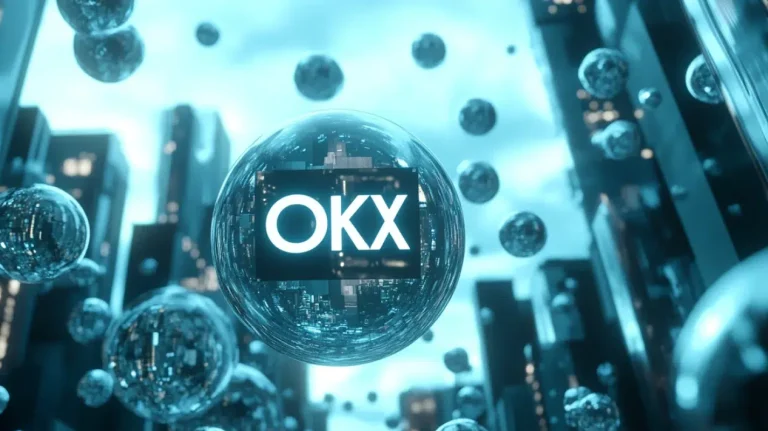Key Takeaways
- OKX has introduced Rubix, a modular solution designed for financial institutions to integrate digital asset services into their existing infrastructure.
- Rubix aims to reduce the barriers to crypto adoption for banks and asset managers by simplifying compliance and operational tasks.
- The platform allows institutions to customize components, supporting various operational models, risk frameworks, and governance structures.
- Features include regulated market access across key jurisdictions, deep liquidity, and off-exchange custody options.
- Rubix supports diverse asset types including fiat, stablecoins, cryptocurrencies, and tokenized money-market funds, enhancing service offerings for institutional clients.
Crypto exchange OKX has unveiled Rubix, a new service engineered to enable institutional clients to offer digital asset services to their customers without the need for developing new infrastructure. This innovative solution allows financial institutions to seamlessly integrate regulated digital asset services into their existing operational frameworks, thereby maintaining their established business models.
Introducing Rubix: Simplifying Digital Asset Integration
Rubix, OKX’s new modular workflow solution, is designed specifically for financial institutions such as banks, brokers, and asset managers. Its core function is to facilitate the embedding of digital asset capabilities directly into existing platforms. By leveraging Rubix, these institutions can diversify their service offerings to encompass new crypto asset classes, opening up previously inaccessible revenue streams from the traditional finance sector.
The modular nature of Rubix offers significant flexibility. Institutions can select the specific components they require and integrate them within their established operating models, risk management frameworks, and governance structures. This approach ensures that digital asset capabilities can be adopted without disrupting existing front-end, middle-office, and back-end processes, thus minimizing operational friction.
Comprehensive Features for Institutional Adoption
Rubix provides institutional clients with a robust suite of features designed to meet regulatory and operational demands. Key among these is the regulated market access module, which is tailored to comply with existing regional frameworks in major jurisdictions. This includes adherence to regulations like MiCA or MiFID II in Europe, VARA in the UAE, AFSL or AUSTRAC in Australia, CNV in Argentina, and U.S. MSB or MTL licensing, ensuring a compliant pathway for digital asset services.
⚡️ Beyond regulatory compliance, OKX Rubix grants access to deep central-limit-order-book markets and over-the-counter (OTC) RFQ systems. It also supports delayed settlement options, which can lead to more capital-efficient operations by removing the need for exchange pre-funding.
💡 The technology is engineered for compatibility with existing Order Management Systems (OMS) and Execution Management Systems (EMS), alongside APIs such as FIX, REST, and WebSocket. For institutions prioritizing asset security, Rubix offers off-exchange custody solutions. This allows clients to choose licensed bank custodians or trusted third-party providers, effectively mitigating counterparty risk.
📊 Furthermore, Rubix provides banks with the flexibility to manage a variety of asset types, including fiat currencies, stablecoins, cryptocurrencies, and tokenized money-market funds. The solution also extends to ancillary services like credit lines, loans, fiat on/off ramps, providing a comprehensive ecosystem for digital asset management.
Addressing Institutional Demand for Crypto Services
The increasing prominence of stablecoins and digital assets within mainstream financial systems has spurred a significant rise in institutional demand for crypto asset services. Major financial players, including JPMorgan, HSBC, and the global payment network SWIFT, have been actively developing their own blockchain solutions to cater to this emerging need within banking.
However, widespread adoption of crypto assets within the banking industry has faced hurdles. These include operational complexities, fragmented technological infrastructure, and the ever-evolving regulatory landscape, which not all banks possess the internal capacity or foundational blockchain technology to overcome.
Simon Ren, Senior Vice President of OKX Institutional, highlighted that complexity and compliance have been major deterrents for institutions looking to integrate crypto assets. He stated that OKX Rubix directly addresses these challenges by offering regulated digital-asset services that can be integrated into existing client channels without requiring them to alter their proprietary business models.
“Rubix is deployed as a bespoke institutional workflow—designed and governed by the client—while OKX provides the regulated, scalable market infrastructure behind it,” Ren explained, underscoring the collaborative and client-centric approach of the solution.
In a recent development, OKX expanded its partnered custody program with Standard Chartered into the European Economic Area. This initiative allows institutional clients to store digital assets with the bank while mirroring balances on OKX for trading purposes. Initially launched in the United Arab Emirates, the program’s expansion into Europe signifies an ongoing effort to broaden access to secure and integrated digital asset solutions for institutional investors.
Expert Summary
OKX’s introduction of Rubix marks a significant step in facilitating institutional adoption of digital assets. The modular platform simplifies integration by allowing financial institutions to leverage regulated digital asset services within their existing infrastructures, thereby lowering operational and compliance barriers.
With robust features including cross-jurisdictional regulatory compliance, deep liquidity access, and secure custody options, Rubix is positioned to meet the growing institutional appetite for crypto services, enabling diversification and new revenue streams for traditional finance firms.

